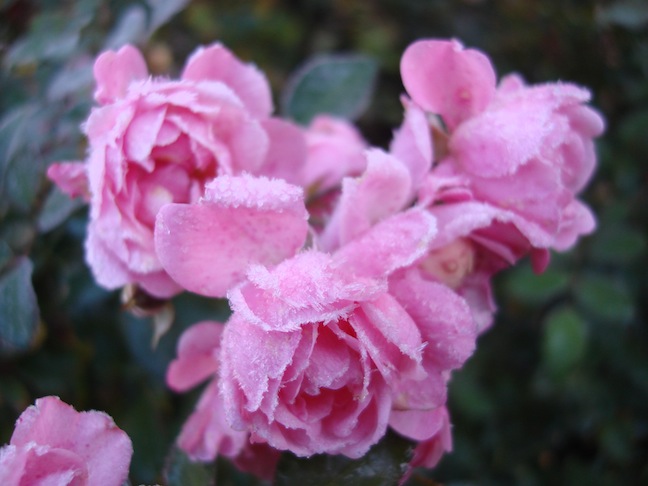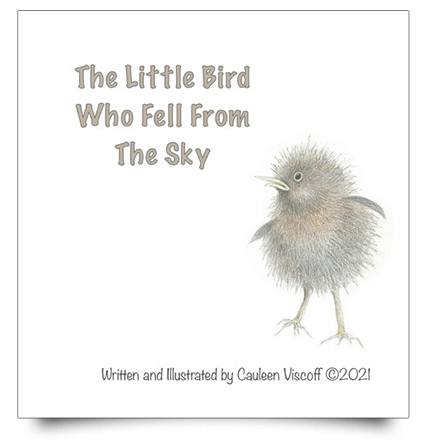I’d love to connect with you! Sign up for my monthly newsletter, "Garden Bliss & Blunder”
FALL GARDENING:
Do's & Don't's
“ Fall is not the end of the gardening year; it is the start of next year’s growing season”
Thalassa Cruso
We want to clean up but - just SOME things.
If you have a Black Walnut in your garden,
Before you start putting your garden to bed, pull out your garden chair on one of those last amazing Fall days and sit right in the middle of your garden. Look around and enjoy how lovely it is and know your hard work was worth it.
Now look to see if you planted too much, or too little; don’t judge, just make a few mental note, then close your eyes, smile and take a wee nap (or a wee nip, or both).

When the frost is on your roses, it is time to get serious about preparing for winter. We need to start at the beginning, unless you need something specific like these:
Most importantly; your SOIL:
This is a good time to amend your soil… see more here- dirty little secrets
It's always a good idea to add compost on top of your garden. Fall rains and snow will soak it into the earth. Then add mulch. If you have bare soil all winter, such as in vegetable beds, consider covering the soil with more compost and mulch to keep it from drying out or eroding.
The soil gives off Nitrogen which the mulch uses for decay.... the circular process that makes living soil and protects beneficial microbes: so essential for plant nutrients.
Tilling (or turning soil) disturbs the life cycle of some insects and wakes up dormant weed seeds allowing them to spread through your garden. In large areas, tilling can also leave the soil open to erosion if the winds are strong and there is little protection.
"Garden Bliss & Blunder"
Have you signed up yet?
My monthly newsletter is free and
full of neat stuff about the incredible
lovely bliss gardening brings
- along with some of the blunders.
No obligation; no ads
CLEAN UP:
Some tidying might mean pruning your perennials..
Clean up plants that are decaying, or slimy such as Hosta or daylilies- that slippery mess makes a cozy winter home for slugs and other nasties and a possible place for disease or bacteria.
Don't put diseased plants or leaves on your compost as it will only spread. Put them out with your trash.
Do cut back Peony leaves and if they have white powdery mildew, don't put them in your compost either. The same goes for any other plant with mildew, such as Phlox.
TOOLS:
Put all your tools in one place. If you have lost a favourite, replace it. Some shops close for winter and may put them on sale. If you have trouble with losing tools, paint your wood handles a bright colour like red; there won't be any confusion about ownership and they are easier to find in the garden.
Clean each tool; remove dirt and rust; then oil: mineral oil works well. Put them where you will easily find them in the Spring. (Make a note in your garden journal).
Disinfect a tool with 1 part chlorine bleach to 9 parts water. Make sure all your tools are dry before storing them - rust can be destructive. Disinfectant wipes are handy to clean tools as you work.
Sharpen each cutting edge of all your clippers, pruners, lawn mower blades.
Drain all hoses, nozzles, wands and sprinklers before the frost. Turn off outdoor taps from inside and drain them too.
POTS:
On a sunny afternoon, pull out your wheelbarrow and fill it full of warm water and soap. First, empty all pots of earth onto a tarp, mix it with compost and use it to hill up your roses, or spread on your garden.
Wipe the pots out and rinse them with fresh water. Let them dry before putting them away. Put newspaper between them if you stack them so they won’t stick together and crack.
They will be ready to go when you get that overwhelming urge to plant in the earliest Spring days.
LAWN MOWERS etc.
Drain all gas from your mowers and cutters etc. If water condenses in the tank or thickens, starting them will be difficult or impossible next Spring. Some folks even suggest taking out the spark plugs. Store all so they remain dry.
Make a list of things you will need by Spring or pick up some of them now, so when the new garden season arrives, you'll have more time in the garden and you won’t have lost your list or forgotten what you need.
OTHER STUFF:
Bring all your cement ornaments, statues etc in out of the rain, snow and ice. If there is even a small crack, water will find its way in and freeze, possibly breaking or damaging them. If you cannot bring them in, cover them to keep them as dry as possible.
Clean your barbecue grill - ready for those balmy winter days when it seems like a good day to cook outdoors. No rust, no goo and no grisley bits for raccoons or skunks to find and snack on.
BIRD HOUSES:
Clean out your bird houses. Wrens especially, will not build in dirty houses. Clean them, store them and put a note on your calendar to put them up the end of February. Clean bird baths and feeders too.
ANNUALS:
FLOWERS:
Remove annual flowers when they have been hit by frost and turn slimy. Leaving them in the garden may harbour disease or bugs and their slimey bits will make it hard for you to amend your soil. If you want your annuals to self sow, wait until the seeds have fallen. Otherwise, cut them back before they seed.
VEGETABLES:
This season’s plants should be pulled. If there is any sign of disease or blight, throw in the trash - not the compost.
If you have a large garden leave some plants in the ground that give some shelter or food for wildlife. Put your lovely Maple leaves on the bare soil and add lots of compost on top.
PERENNIALS:
FLOWERS:
Don’t do a broad cutback of your perennials. Indiscriminate cutting might prevent some from flowering next season. A little tidying and cleaning up your flower beds is all you need. Just remove any diseased foliage that could spread to the soil.
Leave grasses, or cone flowers that add interest during winter and seed heads for birds. A standing garden provides food and shelter for little birds and other small critters in stormy weather.
It is important to let perennials die back; all the green (nutrients) slides back into the roots to give it strength over the winter. they have worked hard all summer, collecting sun and nutrients only to have you undo that - weakening the plant unnecessarily .
Worms condition our soil and are sustained by decaying vegetation.
Do not fertilize at the end of the season. It's like coffee at bed time... it perks up plants that need to be going to sleep.
Mulch tender perennials and roses.
MULCH:
Add compost to bare soil; keeps it from eroding and even around trees and perennials to keep moisture in and reduce water run-off. Keep mulch a couple of inches away from the base of trees.
Science has proven that wood chips (3 to 4 inches) are best for making rich soil. They break down more slowly than shredded bark and you will have to replenish them less often.
There is controversy about coloured mulch. If you choose a colour, keep two things in mind:
1. The colour comes from dyes. Make sure the dye is from a natural source.
2. Ask yourself: do I want folks to admire my mulch? or my garden. If you must use a colour, make sure it fits into your garden colours naturally.
DIVIDING PERENNIALS:
Fall is a great time to divide; gives you more plants and more space for those remaining in the garden.
When planting those divisions, dig a hole, fill it with water, plant and water every few days until the ground freezes.
This is the time to plant bulbs. Daffodils and Hyacinth, by the end of September to give them time to put down roots. Tulips, any time up until the ground freezes.
Plant them at least 8 to 10 inches deep to prevent squirrels from snacking on them. Squirrels do not like Daffodils so plant them on top of your tulips and as deeply as possible. This means you can put other plants above them and leave them in the ground for years, allowing them to spread.
If you place blood meal in the hole with bulbs, squirrels as less apt to dig them up. Also, some swear by a product that uses chicken poop. Either one can help.
If you are using powdered blood or bone meal, DO NOT BREATHE it in when you sprinkle it in the hole. Not a powder you wish in your lungs!
Rather than planting one bulb in each hole, dig a larger hole and put in at least 4 or 5: gives the best show.
Be sure to mark where they are, or when the first warm days arrive, your eagerness to start digging may unearth them.

Don’t leave it all for one day;
start now and work away at it.
Enjoy these days, they won’t last….


